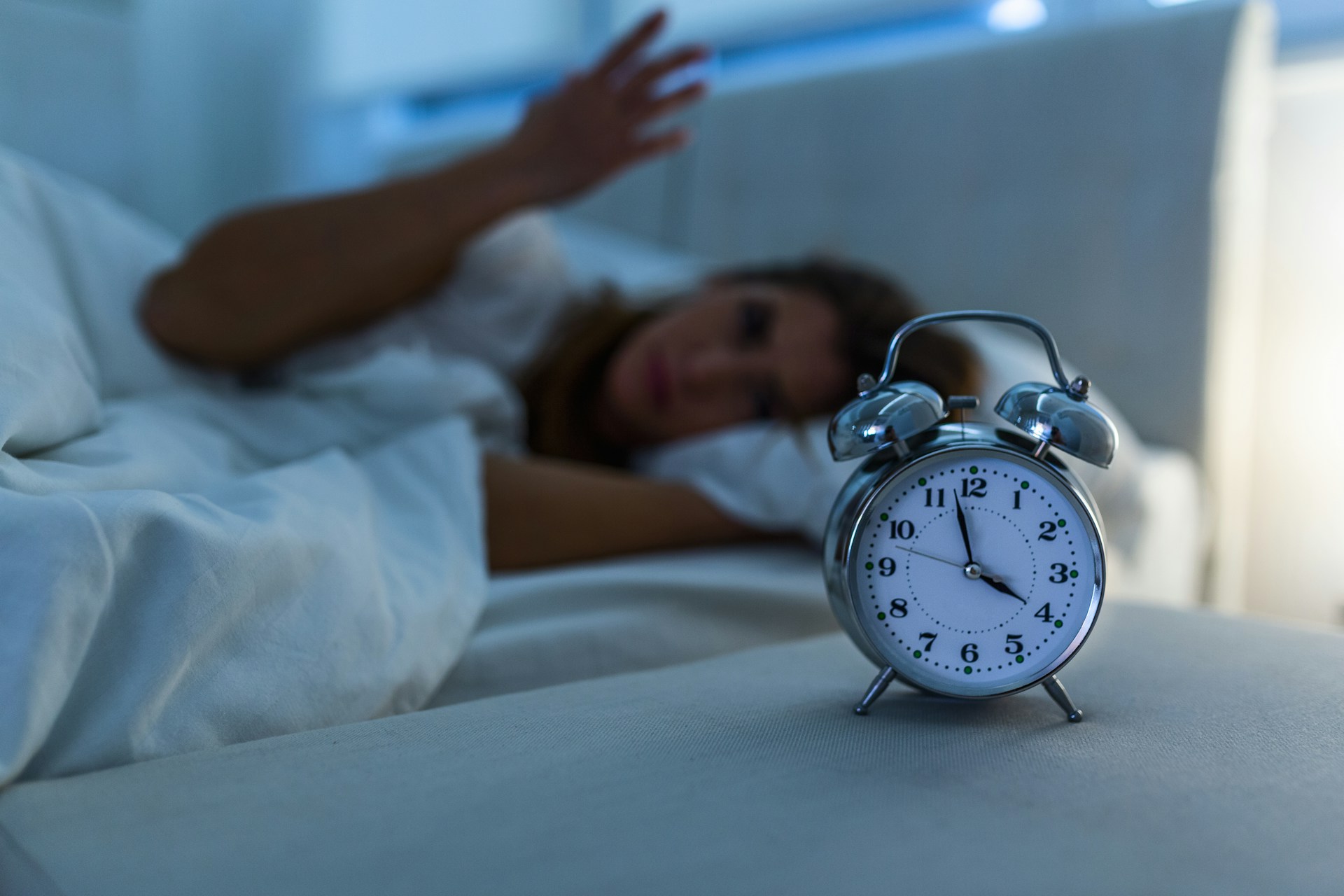Menopause is a time of significant change in a woman’s life, and one of the most common complaints during this transition is sleep problems. Many women find themselves tossing and turning, unable to get the restful night’s sleep they need. Sleep disturbances can be frustrating and affect every part of daily life, from mood to overall health.
The hormonal shifts during menopause, such as the decline in estrogen and progesterone, can greatly affect sleep patterns. These changes can lead to difficulties falling asleep or staying asleep. When sleep is disrupted, it can lead to fatigue, reduced focus, and irritability, making it harder to handle the demands of everyday life.
Thankfully, there are solutions to help ease these sleep problems. Hormone therapy is one option that can make a difference by addressing the root cause of the issue—balancing hormone levels. Learning more about how hormone therapy works and exploring other strategies for better sleep can provide relief and improve quality of life during menopause.
Understanding Sleep Problems During Menopause
Menopause is a time of transition that brings many changes, and sleep disturbances are a common complaint among women during this period. As the body undergoes hormonal shifts, sleep can become irregular and disrupted. The primary culprits behind these disturbances are the changes in levels of hormones like estrogen and progesterone. These hormones play a significant role in regulating sleep cycles, and their decline can make it difficult to fall asleep or stay asleep through the night.
Estrogen, which has a calming effect on the brain, diminishes during menopause, leading to increased restlessness. Progesterone, known for its role in promoting sleep, also decreases, causing more interruptions in sleep patterns. This hormonal fluctuation is why many women experience heightened sleep issues as they progress through menopause. Understanding this connection is key to finding effective solutions for improving sleep quality.
Besides hormonal changes, other menopausal symptoms such as hot flashes and increased anxiety can contribute to sleep problems. Combining these symptoms can make nights uncomfortable, leading to frequent waking and difficulty getting restful sleep. Recognizing these underlying causes of sleep disturbances can help women seek appropriate help, such as hormone therapy, to restore balance and achieve better sleep.
Common Sleep Issues in Menopausal Women
Sleep issues during menopause can manifest in various ways, each affecting women differently. Some of the most common problems include:
1. Insomnia: Difficulty falling asleep or waking up in the middle of the night is a frequent complaint. Insomnia can lead to exhaustion and irritability during the day, impacting focus and productivity.
2. Night Sweats: Sudden bursts of sweating during the night can disrupt sleep and result in feeling overheated. This can cause women to wake up frequently, making it hard to return to restful sleep.
3. Restless Legs Syndrome: Some women experience tingling or discomfort in their legs while trying to sleep, resulting in the constant urge to move. This can further delay falling asleep and shorten overall sleep duration.
4. Restless Sleep: Even if falling asleep is not an issue, many women report restless sleep with constant tossing and turning, preventing them from reaching deep, restorative sleep stages.
These issues can have a significant impact on daily life. Lack of sleep affects mood, energy levels, and mental clarity. It can even impact relationships and work performance. Chronic sleep deprivation can also pose health risks, such as weakened immunity and increased stress. Identifying and addressing these common sleep issues is crucial for maintaining overall well-being during menopause.
Exploring the Benefits of Hormone Therapy for Sleep
Hormone therapy has become a popular solution for addressing sleep problems related to menopause. By replacing diminishing hormones, it helps restore balance, making it easier for women to achieve a good night’s sleep. The primary hormones used in this therapy are estrogen and progesterone, both of which play vital roles in regulating sleep. When hormone levels are balanced, symptoms such as night sweats and insomnia can decrease, leading to better sleep quality.
There are various types of hormone therapy available, giving women options to choose what best suits their needs. Here are some of them:
Estrogen Therapy
Estrogen therapy is often the first choice for women experiencing severe menopausal symptoms such as hot flashes and night sweats that disrupt sleep. By replenishing estrogen levels, this therapy targets the physiological changes that lead to these disturbances.
Available in various forms, including pills, patches, gels, creams, and sprays, estrogen therapy is flexible enough to suit different preferences and lifestyles. Its primary benefit lies in its ability to stabilize mood, reduce anxiety, and create an environment conducive to better sleep. However, it is most commonly recommended for women who have had a hysterectomy. Women with an intact uterus may need to combine estrogen with progesterone to mitigate the risk of endometrial cancer.
Combination Therapy (Estrogen and Progesterone)
Combination therapy involves the use of both estrogen and progesterone, particularly beneficial for women who still have their uterus. The inclusion of progesterone is crucial as it counteracts the potentially harmful effects of estrogen on the uterine lining.
Progesterone itself has sedative properties, promoting a calming effect that can significantly enhance sleep quality. Available in varied forms such as pills, patches, or creams, this therapy can be customized to meet individual health needs and preferences. By addressing both the hormonal imbalances and providing direct relief from insomnia, combination therapy offers a comprehensive solution for sleep issues during menopause.
Bioidentical Hormone Replacement Therapy (BHRT)
Bioidentical Hormone Replacement Therapy (BHRT) utilizes hormones that are chemically identical to those the human body naturally produces. This approach is increasingly popular due to its natural alignment with the body’s physiology, which is believed to result in fewer side effects.
BHRT is used to address a range of menopausal symptoms, including sleep disturbances, by restoring hormonal balance. These hormones are typically available in customized forms like creams, gels, and compounded formulations, allowing for a personalized approach to treatment. Many women favor BHRT for its perceived natural benefits and potential for providing effective relief from menopausal symptoms while minimizing adverse reactions.
Individualized Treatment Approach
Despite its benefits, hormone therapy is not a one-size-fits-all solution. It’s crucial for each woman to consult with healthcare providers to explore if hormone therapy aligns with her health needs. Personal health history, risk factors, and specific symptoms should guide the decision-making process. For instance, women with a history of breast cancer, blood clots, or liver disease might need to consider alternative treatments. An individualized treatment approach ensures that the therapy is both effective and safe.
Potential Concerns and Considerations
While hormone therapy offers significant benefits, there are potential risks, including an increased risk of certain types of cancer, cardiovascular events, and thromboembolic diseases. These risks make it essential for women to undergo thorough consultations and regular monitoring. Additionally, starting therapy at the onset of menopause and using the lowest effective dose for the shortest period reduces potential risks. Understanding these aspects ensures that women can make informed choices about their health.
Additional Strategies for Better Sleep
While hormone therapy can be effective, combining it with lifestyle changes can further enhance sleep quality. Here are some tips for better sleep during menopause:
1. Create a Sleep-friendly Environment: Keep the bedroom cool and dark. Use breathable, comfortable bedding to prevent overheating at night.
2. Stick to a Routine: Try to go to bed and wake up at the same time each day, even on weekends. This helps regulate your body’s internal clock.
3. Nutritional Adjustments: Limit caffeine and alcohol before bedtime as they can disrupt sleep. Consider a light snack rich in tryptophan, a sleep-promoting nutrient.
4. Exercise Regularly: Engage in regular physical activity, but avoid vigorous exercise close to bedtime as it can keep you awake.
5. Relaxation Techniques: Practice deep breathing, meditation, or gentle yoga before bed to relax the mind and body.
Natural remedies, such as herbal teas like chamomile, can also promote relaxation and help improve sleep. Together, these strategies can work alongside hormone therapy to provide relief and improve rest during menopause.
Conclusion
Managing sleep disturbances during menopause involves understanding the root causes and exploring effective solutions like hormone therapy. By addressing the hormonal changes that contribute to sleep problems, many women find significant improvement in their sleep patterns. The right approach often combines hormone therapy with lifestyle changes to maximize benefits and ensure restful nights.
Advanced Medical WLC stands ready to support you on this journey toward improved sleep and well-being. Contact us today to learn more about hormone replacement therapy for women and see how we can help you achieve better rest during menopause. Let us be your partner in navigating this important stage of life with confidence and care.






